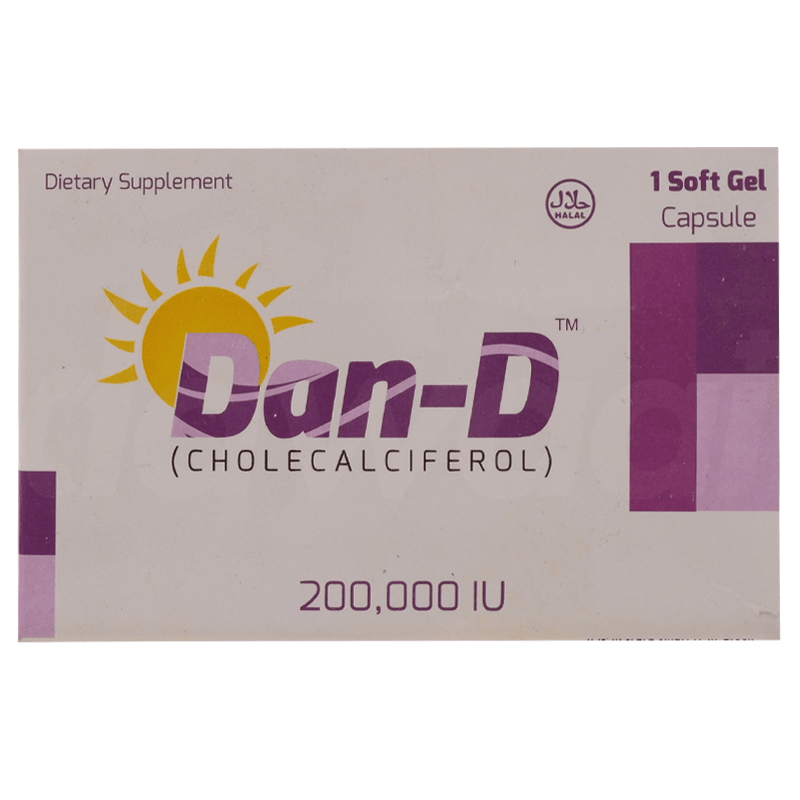
Order Placed
Awaiting Payment
Awaiting Prescription
Order Confirmed
Shipped
Delivered

This medication contains Vitamin D in it which is a fat soluble vitamin that will help to absorb calcium and phosphorus in body. It is used for preventing and treating bone disorders like rickets (softening and weakening of bones in children), osteomalacia (softening of bones due to vitamin D deficiency), osteoporosis (bone loss). It may also be used with other medicines for treating low levels of calcium or phosphate in disorders like hypoparathyroidism (low levels of parathyroid hormone), pseudohypoparathyroidism (resistance to the parathyroid hormone), familial hypophosphatemia (a group of rare inherited disorders) and in kidney disease to allow normal bone growth by keeping calcium levels normal.
If vitamin D is taken at normal doses, they show no side effects. But if you experience any unusual effects then consult your prescriber right away. Taking too much vitamin D can lead to harmful high levels of calcium. In case of signs of high vitamin D/calcium levels occur like nausea/vomiting, loss of appetite, increase in thirst, increased urination, constipation, mental or mood changes & unusual tiredness, then tell your doctor right away. A very serious allergic reaction with this is rare. But if you notice symptoms like rash, itching, swelling, difficulty breathing, severe dizziness; then get medical help.

Pregnant female taking this medication may experience gestational diabetes (females who previously were not having diabetes exhibit higher than normal levels of blood sugar while pregnant), preterm birth (premature birth), and infection. Consult your doctor for further advice.

There is evidence that this medicine passes through breast milk, so its use in lactating mothers should be with a doctor’s recommendation.

This medicine may contain inactive ingredients (such as peanut/soy) that can initiate allergic reactions so, keep your doctor informed if you are allergic to it or to any other vitamin D product (like calcitriol). While taking this medicine, inform your doctor or pharmacist of any medical conditions especially if you have hypercalcemia or hypervitaminosis D (high calcium/vitamin D levels), malabsorption syndrome (difficulty absorbing nutrition from food), kidney disease or liver disease.
This medication is contraindicated in patients with sarcoidosis (growth of tiny collections of inflammatory cells), high amount of phosphate in the blood, high amount of calcium in the blood, excessive amount of vitamin D in the body, a blockage of the arteries called arteriosclerosis obliterans, kidney stones and decreased kidney function.
What should be taken with vitamin D3?
As vitamin D3 is a fat-soluble vitamin i.e. it will not dissolve in water and will be well absorbed in blood when taken with high-fat containing foods. That’s why Vitamin D supplements are recommended to take with meal for better absorption.
Can vitamin D3 injection be safe?
In a study, it is shown that once a year intramuscular cholecalciferol injection (600,000 IU) will be effective therapy in vitamin D deficiency.
What are the side effects of vitamin D injection?
Mostly there are no side effects experienced, unless taken too much. It may include weakness, fatigue, sleepiness, headache, loss of appetite, metallic taste and dry mouth.
How is vitamin D shot given?
In adults and teenagers, at first, 0.5 mcg is injected in the vein 3 times per week. Doctor may change dose as needed. In children its use and dose should be determined by a doctor.
What signs indicated low vitamin D?
Signs like fatigue, bone pain, muscle weakness, muscle aches, muscle cramps, mood changes like depression.
Disclaimer
Dawaai's intention is to make sure that it's consumers get information that is accurate, reviewed by an expert and error-free. However, the information mentioned here should not be used as a replacement for the advice of a qualified physician. The information given here is for informational purposes only, which may not cover all possible precautions, side effects, contraindications or drug interactions. Consult your doctor and discuss your queries related to any medicine or disease.
Offers
Up to 10% OFF
Get discounts of up to 10% on every item added to your cart. Use Voucher: DawaaiDiscount

Up to 20% OFF
Get flat 20% off only on Fridays with Meezan Bank Credit/Debit Card. Use Voucher: MeezanFridays

Up to 20% OFF
Get 15% off all products and 20% off medicines using HBL debit and credit card. Use Voucher: HBLDiscount

Up to 25% OFF
Get up to 25% off medicines when you pay through Habib Metro Cards. Use Voucher: HMBDiscount

Up to 25% OFF
Get 25% off on Visa Signature Credit Card and 15% off on Platinum Cards on medicines only. Use Voucher: SBDiscount
